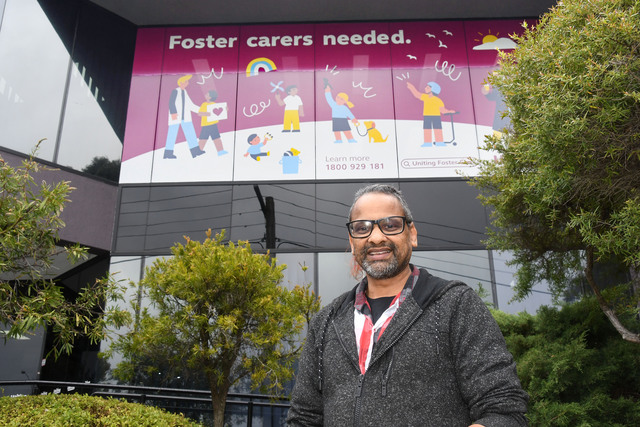A single male foster carer in Doveton has had his doors open for children and teenagers in need of a safe and stable home since 2017.
In a world where foster carers are usually couples or families, Sean has proven he can single handedly provide basic human need and has remained dedicated to provide that long-term care.
He signed up to become a carer both out of demand and choice after his colleague mentioned a young boy who needed immediate care but no one would take in the special-needs child.
“One of my colleagues at work is a foster carer and during lunch free time, we’ll have conversations.
“I didn’t realise he was a single dad and I thought being single meant you can’t do fostering but he told me more,” he says.
“I thought I could do that. Most kids just need a place to live with structure, a bit of love.
“He said there was a boy that really needed foster caring and no one will take him in. He told me the circumstances and I said I could do that, it sounds alright.
“He wouldn’t be easy but raising kids isn’t easy too.”
Sean went through the required training and interviewing process to house the young boy immediately.
His current foster son has been in the family for seven years, since the age of 10. Prior to that, he was bounced around between homes 32 times.
He was brought to Sean for weekend-respite multiple times before Sean asked the question, “Has this kid got a long-term home?”
During the respite weekends, the two bonded well and four years later Sean became his long-term carer granted by the court.
It was only after that, that his foster son gained stability, started to make plans and move on with his life.
“I didn’t have that expectation (that he’d stay long term). I wasn’t sure if Child Protection could move the kids on or they could be reunited with their family.
“He started to make friends at school, he attended school, started to personalise his room, became like a normal kid, he wasn’t ready to leave anymore, his moods were more calm.
“He was able to plan his life like go to the movies with his friends. Before that he lived day to day.
“It took a lot of coaching on how to keep your friends, he had sleepovers or had friends over, and after an hour he’ll walk off and not engage with them.
“All those years he didn’t know how to have long-term friends.
“It was always short-term friends in short-term foster cares. Sometimes they don’t even have friends or allowed to have friends come to their house.”
Sean is supported by his parents and siblings in raising his foster son and they have formed their own relationships with him like any other family.
Jacqui Bance, foster care recruitment specialist at Uniting, says having teenagers in long term placement is “difficult by anyone’s standard” .
But Sean’s calm, steady nature, patience and knowing he can’t fix everything allow the teenagers to be themselves without any pressure.
“He’s a laid back kind of guy, works in the community centre. He wanted a family around him, he cares and that goes a long way.
“The young person he had is now part of his family, his extended family look at him as family.
“He is very settled and happy he’ll probably end up staying with Sean after he turns 18.”
She says there’s a shift in the complexity of each cases, a rise in children with extreme behavioural issues, who are emotionally dependent with no emotional regulation. It makes it difficult for schools and carers and a lot more disability or physical developmental issues.
Victoria’s Foster Care Week this month is an annual celebration recognising the vital role of foster carers in supporting children and young people.
This year’s theme ‘Time to Care’ celebrates the valuable time that foster carers dedicate to supporting children and young people and celebrates how much each and every one of those moments matter.









